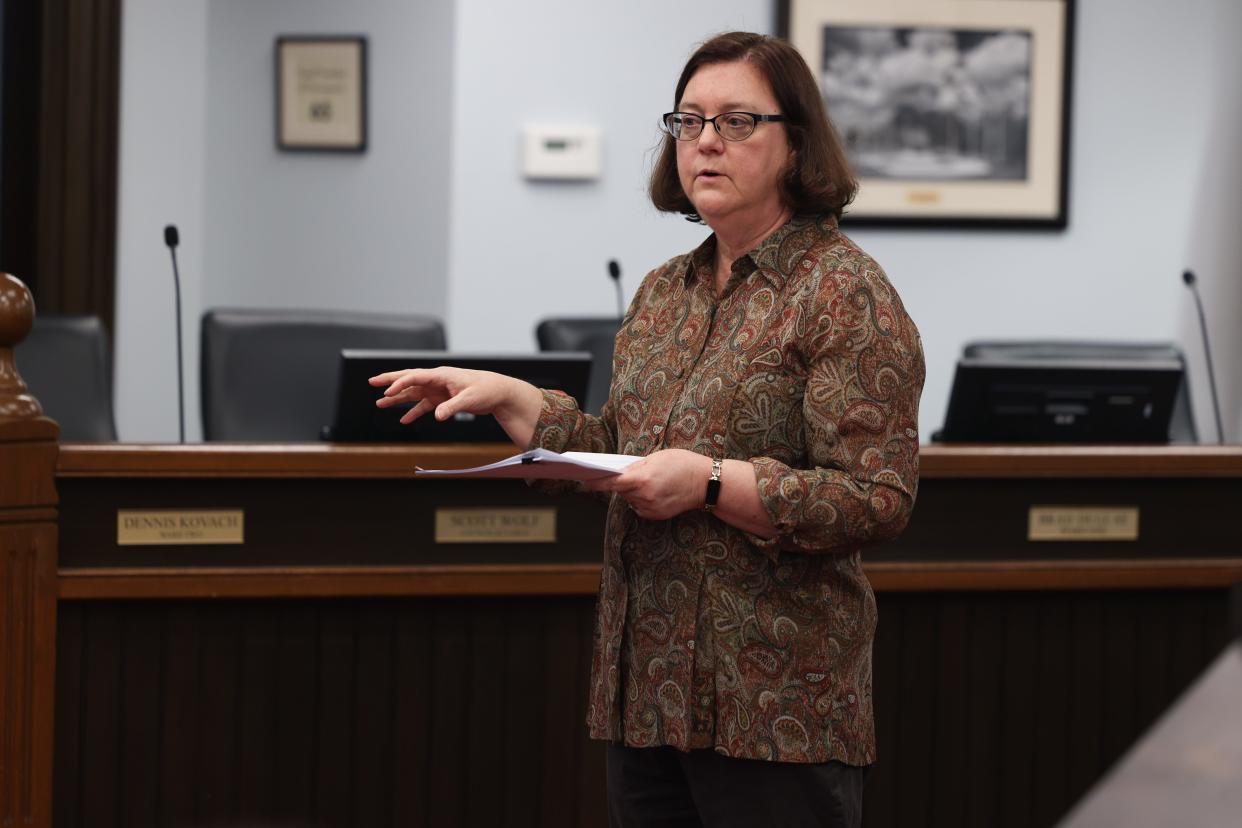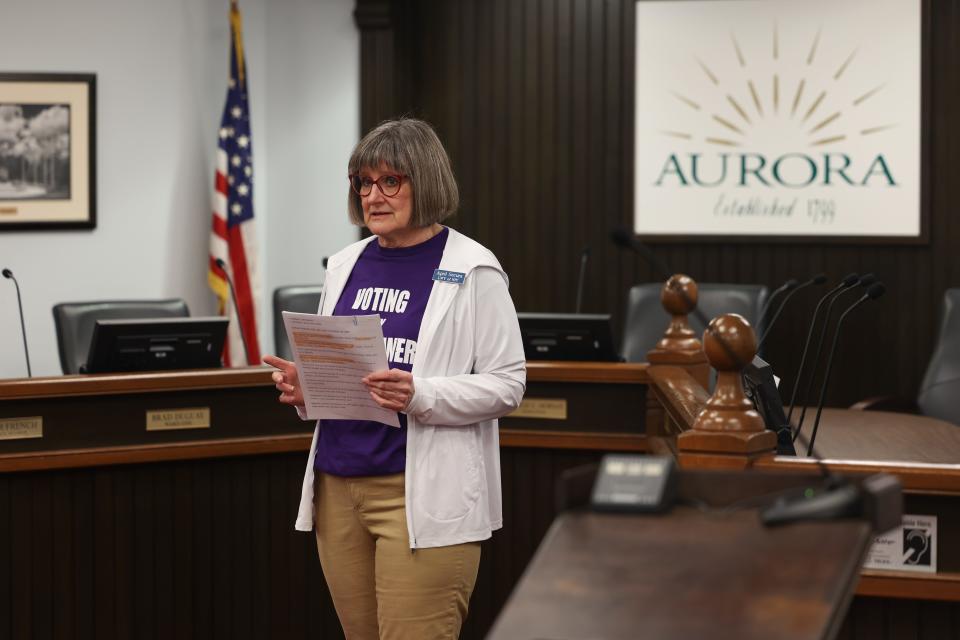Voter ID law changes in Ohio to impact seniors, college students

Senior citizens who live in nursing homes and college students are likely to be most impacted by a new voter ID law that will be in place for primary elections this spring, a board of elections official told members of the League of Women Voters of Northern Portage County Wednesday.
More: Events in Ravenna, Aurora, Kent to focus on voting changes
The League of Women Voters of Kent and the League of Women Voters of Northern Portage County hosted a weeklong series of events to raise awareness of new voting requirements. A similar event took place in Ravenna on Monday and was set in Kent on Thursday.
More: How Ohio's new voter ID law compares to other states
Theresa Nielsen, deputy director of the Portage County Board of Elections, outlined what kind of identification will be needed when casting a ballot in person.
Early, in-person voting starts Tuesday at the Board of Elections office in Ravenna for the May 2 primary. Many communities, including Aurora, don't have any candidates or issues on the ballot in May.

When voting in person, voters must present a photo ID. The types of ID that qualify are:
Unexpired Ohio driver's license with current or former address.
Unexpired state ID card with current or former address.
U.S. passport or passport card.
Military ID, specifically a U.S. military ID card, Ohio National Guard ID card or a U.S. Department of Veterans Affairs ID card.
A free state ID card is available to those who do not have a driver's license, Nielsen said. However, in order to obtain the ID, various other forms of identification are needed, such as a birth certificate, Social Security card and proof of residency, such as certain types of mail.
Nielsen predicted that this is likely to impact college students, who often go away to school without those important documents.
Another population that is likely to be impacted are new residents to nursing homes. If a person is admitted to a nursing home and hasn't registered to vote absentee at the facility, voting can be a problem, especially if the driver's license is expired or the person doesn't have one. Those documents can't be updated without going to the BMV in person.
The Portage County Board of Elections has been meeting with area nursing homes and suggesting the facilities include voter registration forms in their welcome packets.
In addition, certain types of county-issued photo IDs are not acceptable.
Aurora City Councilman Dennis Kovach showed Nielsen a photo ID that he said he received from Portage County Veterans Services. Because those cards are issued by the county, they're not an acceptable form of ID, Nielsen said. Neither are concealed-carry permits, which voters also have used in the past.
For now, voters can get around those laws by voting absentee by mail. Those voters need to give either their valid driver's license number or the last 4 digits of their Social Security card, not both. Voters must request that a ballot be mailed to them no later than April 25, and they still must be postmarked the day before the election and received no later than four days after the vote, a change from 10 days after, which was the case previously.
Some Amish voters also can file an affidavit of religious objection if they object to their photograph being taken. Those voters, Nielsen said, will be required to file a provisional ballot while the Secretary of State's office checks to make sure the voter doesn't have an unexpired driver's license.
Nielsen predicted that voters will be upset when they learn how the new law affects them, and people will be more angry next year, which is a presidential election cycle.
"We do anticipate there are going to be some angry people who are going to come in to vote," she said.
Those voters, she said, will be given a copy of the legislation and contact information for their elected officials in Columbus.
"Our job is to follow the rules," she said.
Reporter Diane Smith can be reached at 330-298-1139 or dsmith@recordpub.com.
This article originally appeared on Record-Courier: Voter ID law changes in Ohio to impact seniors, college students

